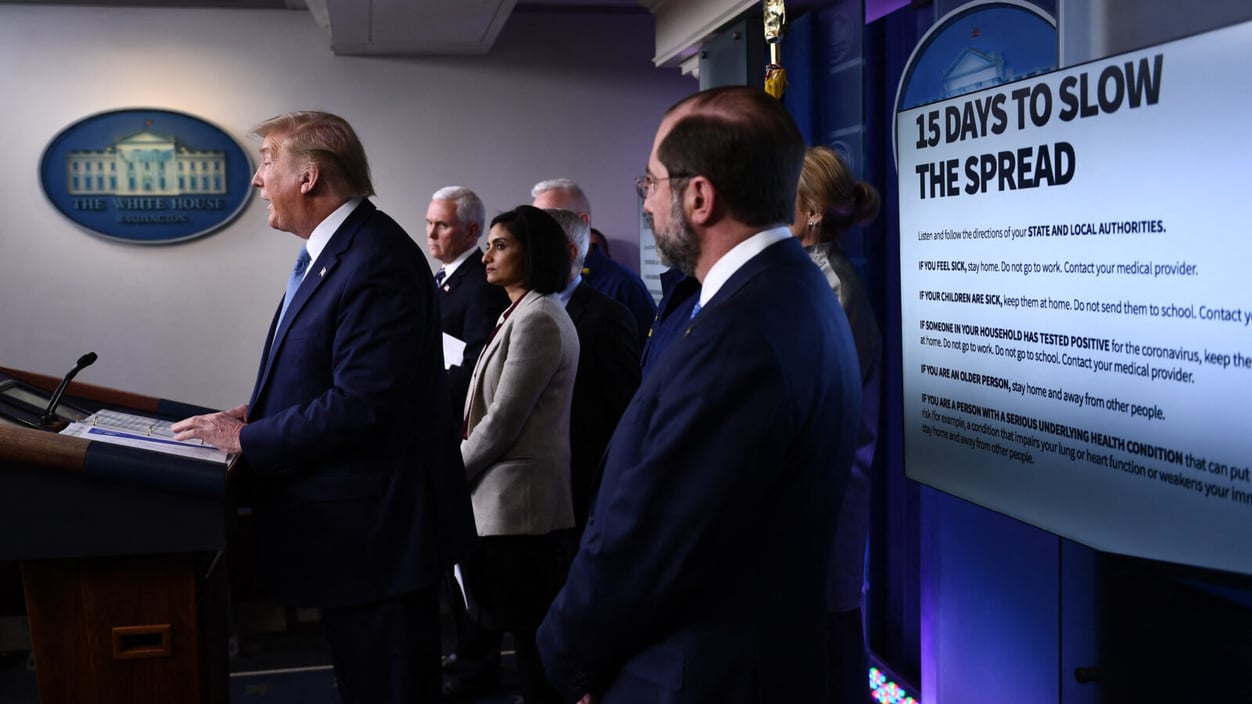vaccines
How mRNA became a government target

BRENDAN SMIALOWSKI/AFP via Getty Images
Last week, HHS confirmed it was canceling a more than $700 million contract with Moderna to develop, test, and license mRNA vaccines for flu strains that could cause future pandemics. It was the latest in a series of moves signaling the administration's growing disdain for messenger RNA — a basic building block of biology that was once harnessed by Trump officials to create Covid shots in record time. Now, Republican lawmakers and federal health officials alike are shunning Nobel-winning technology.
Some of the attacks levied at mRNA are about the technology itself, while others stem from general vaccine skepticism and frustrations with vaccine mandates during the pandemic. But, as the STAT dynamic duo of Lizzy Lawrence and Isabella Cueto report, the impact is the same: Waning political support of mRNA is leading to waning investor support. Some public health experts worry the field will flounder, leaving Americans without vaccines in the event of another pandemic.
Read more from Lizzy and Isa about the ongoing mRNA war, and what shots might be fired next.
more vaccines
Another Covid vaccine approval with restrictions attached
The FDA approved Moderna's new Covid-19 vaccine late Friday, though it placed restrictions on its use that the company's existing Covid shot, Spikevax, does not currently face.
Just as it did earlier this month with Novavax's Covid vaccine, the agency said the new Moderna shot, called mNexspike, is licensed for use only in people aged 65 and older and people aged 12 to 64 who have at least one medical condition that puts them at increased risk of becoming seriously ill if they contract the SARS-CoV-2 virus. (Such conditions include diabetes, chronic obstructive pulmonary disorder or COPD, and obesity.) Spikevax's license simply allows its use in people aged 12 years and older.
Read more from STAT's Helen Branswell on what it means. And if the administration's strategy on Covid vaccines is confusing to you, check out a story Lizzy wrote Sunday about a television interview with FDA commissioner Marty Makary. But a warning: you may find more contradictions than answers. On CBS News' "Face the Nation," Makary called the CDC's independent vaccine advisory panel a "kangaroo court" that "rubber-stamps" every vaccine. Later, he cited the panel's proposed risk-based approach as justification for the administration's policy changes the past few weeks.
first opinion
Rethinking the culture of clinical detachment
Kate Solpari spent so much time in hospitals growing up that she invented a game to play during morning rounds: contorting her face into increasingly ridiculous expressions to see which doctors actually looked up from their charts. As she writes in a new First Opinion essay, she was looking for someone who could see both her and her medical condition. There were two doctors who did, and they changed her life.
In medicine, there is a belief that emotional distance is essential. This idea is not without merit, Solpari writes. Still, she would like to imagine a medical system that embraces emotional investment as a strength rather than a liability. The two doctors who changed her life — by both treating her condition and nurturing her independence and curiosity — serve as inspirations for Solpari now, as she prepares for her first year of medical school. Read more about her journey with Dr. L and Dr. Z.


No comments